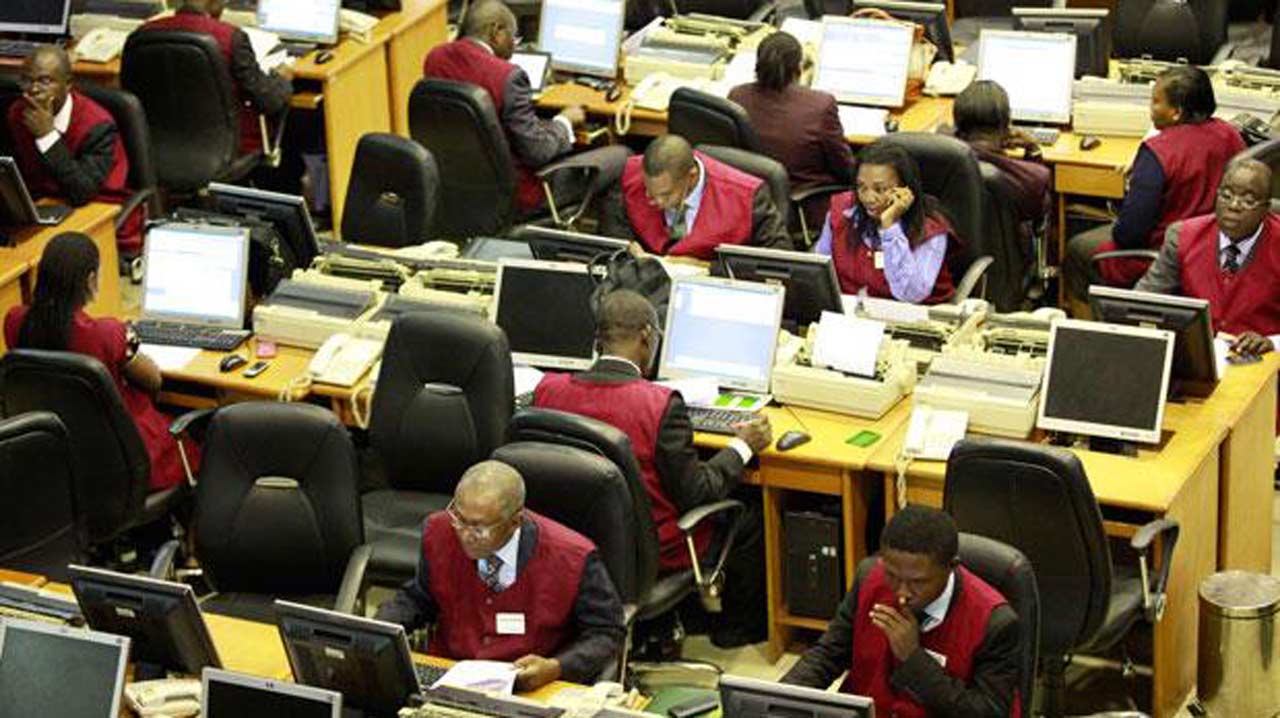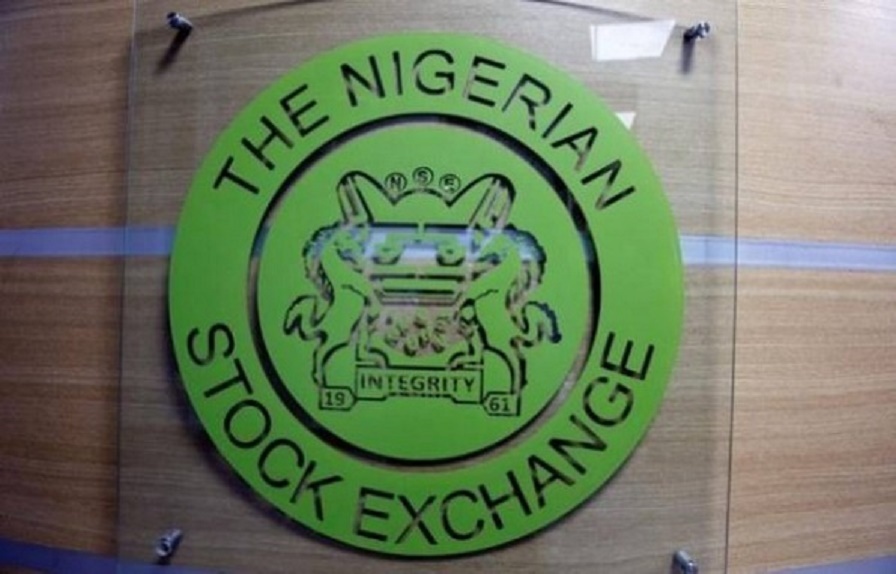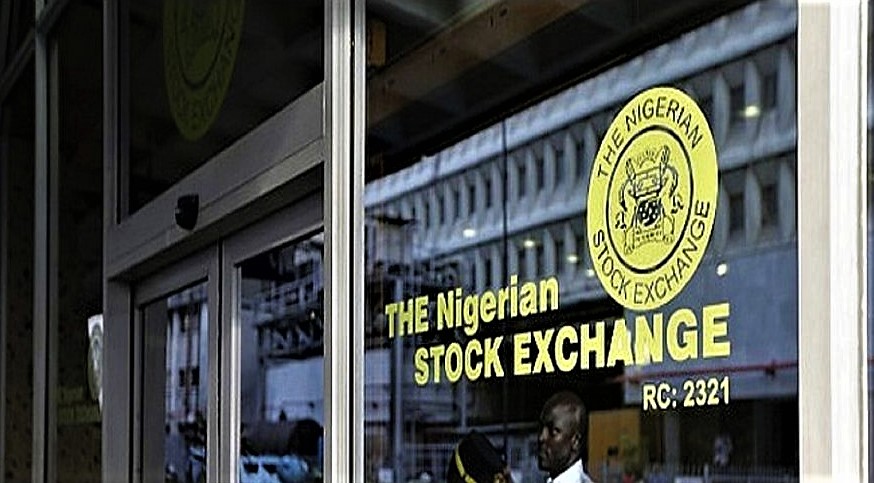Economy
NSE Nominal Transfers Rules Take Effect

By Dipo Olowookere
Today, Wednesday, July 11, 2018, the Nigerian Stock Exchange (NSE) rules on nominal transfers have taken effect.
A notice released yesterday by the NSE disclosed that the rules were approved by the Securities and Exchange Commission (SEC) and would be officially taking effect today.
The rules on the nominal transfers are under the Rule 15.34 of the NSE Rulebook, from page 87 to 89.
The NSE Rulebook is a compilation of all the rules, regulations and guidelines of the market regulator in one document, which facilitates quick and easy access to the Rules by Dealing Members, Issuers, investors and all other stakeholders who require them.
Under the new rules, (a) No security listed on The Exchange shall be bought or sold outside the facilities of The Exchange.
(b) Any securities holder that wishes to transfer his securities by way of a nominal transfer shall apply to The Exchange through his Stockbroker for transfer of the securities. The Stockbroker shall carry out the requisite Know-Your-Client (KYC) enquiries on the securities holder and the proposed Transferee.
(c) The Exchange shall review the application and the supporting documents submitted by the Stockbroker to determine whether the relationship between the proposed Transferor and the proposed Transferee is sufficient for the transaction to be classified as a nominal transfer.
(d) In reaching a decision to classify a transaction as a nominal transfer The Exchange shall:
(1) With regard to a nominal transfer between corporate entities, consider whether a Party directly or indirectly controls the other Party, or both Parties are under common control. A Party shall be deemed to control another Party if it holds or is beneficially entitled to hold, directly or indirectly, more than fifty percent (50%) of the total voting rights in the other Party, its total income, or issued share capital. Connections between corporate entities include but are not limited to the following:
(A) Holding companies, subsidiaries and sister subsidiaries,
(B) A joint venture and a special purpose vehicle created for the purpose of the joint venture;
(2) With regard to nominal transfer between individuals, the NSE shall consider the following connections:
(A) Whether there is a familial relationship between Transferor and Transferee including but not limited to spouse, brother, sister, father, mother, child or step‐child;
(B) Whether the Transferor is acting as trustee of any trust or as the personal representative administering any deceased person’s estate; and the Transferee, is:
(i) a beneficiary of such trust or estate who has a familial relationship with the settlor of the trust or the deceased such as being a spouse, brother, sister, father, mother, child or step‐child; or
(ii) a body corporate in which the beneficiary under sub-rule (i) above is a shareholder, or
(iii) a trust whose terms confer a power on the trustees that may be exercised for the benefit of the beneficiary under sub-rule (i) above.
(3) With regard to a nominal transfer between an individual and a corporate entity, consider whether the individual is a beneficial shareholder of the corporate entity.
(e) The Parties shall comply with such directions as may from time to time be provided by The Exchange with regard to completing the transaction.
(f) In order for The Exchange to approve the transfer, the following documents shall be submitted to The Exchange:
(1) Application letter by the Stockbroker introducing the client and detailing the nature of the transaction;
(2) two (2) copies of the client’s CSCS shares Statement indicating the current shareholding position, where the shares are dematerialized;
(3) two (2) copies of a Letter of Authority addressed to The Exchange executed by the proposed Transferor;
(4) For a corporate entity, a duly executed board resolution and a certified true copy of its most recent Form CAC 7 (Particulars of Directors) and Form CAC 2 (State of Share Capital and Return Allotment of Shares);
(5) Original executed securities transfer form(s);
(6) Mandate executed by the Transferor in favour of the Stockbroker making the application;
(7) Other relevant documents such as means of identification of the Transferor, Transferee, any signatories or relevant person;
(8) In respect of a trust, a certified true copy of the trust deed; and
(9) In respect of the estate of a deceased, a cerfified true copy of the will and the probate or if intestate, the letters of administration;
(10) Such other documents as may be required by The Exchange.
(g) The Exchange shall charge a fee as may from time to time be determined and published by it as approved by the Commission.
(h) Where the transaction is eligible for approval by The Exchange, the Transferee shall execute an indemnity in a form to be prescribed by The Exchange.
Economy
NGX RegCo Cautions Investors on Recent Price Movements

By Aduragbemi Omiyale
The investing public has been advised to exercise due diligence before trading stocks on the Nigerian Exchange (NGX) Limited.
This caution was given by the NGX Regulation Limited (NGX RegCo), the independent regulatory arm of the NGX Group Plc.
The advisory became necessary in response to notable price movements observed in the shares of certain listed companies over recent trading sessions.
On Monday, the bourse suspended trading in the shares of newly-listed Zichis Agro-allied Industries Plc. The company’s stocks gained almost 900 per cent within a month of its listing on Customs Street.
In a statement today, NGX RegCo urged investors to avoid speculative trading based on unverified information and to consult licensed intermediaries such as stockbrokers or investment advisers when needed.
It explained that its advisory is part of its standard market surveillance functions, as it serves as a measured reminder for investors to prioritise informed and disciplined decision-making.
The notice emphasised that the Exchange will continue to monitor market activities closely in line with its mandate to ensure a fair, orderly, and transparent market.
“NGX RegCo encourages all investors to base their decisions on publicly available information, including a thorough assessment of company fundamentals, financial performance, and risk profile,” a part of the disclosure said.
It reassured all stakeholders that the NGX remains stable, well-regulated, and resilient, saying the platform continues to foster an environment where investors can participate with confidence, supported by robust oversight and transparent market operations.
“Our primary responsibility is to maintain a level playing field where market participants can trade with confidence, backed by timely and accurate information.
“This advisory is a routine communication, reinforcing that sound fundamentals, not speculation, remain the foundation for sustainable investment outcomes. We are fully committed to preserving the integrity and stability of our market,” the chief executive of NGX RegCo, Mr Olufemi Shobanjo, stated.
Economy
Stronger Taxpayer Confidence, Others Should Determine Tax Reform Success—Tegbe

By Modupe Gbadeyanka
The chairman of the National Tax Policy Implementation Committee (NTPIC), Mr Joseph Tegbe, has tasked the Nigeria Revenue Service (NRS) to measure the success of the new tax laws by higher voluntary compliance rates, lower administrative costs, fewer disputes, faster resolution cycles, and stronger taxpayer confidence.
Speaking at the 2026 Leadership Retreat of the agency, Mr Tegbe said, “Sustainable revenue performance is built on trust and efficiency, not enforcement intensity,” emphasising that the legitimacy and predictability of the system are more critical than punitive measures.
He underscored that the country’s tax reform journey is at a critical juncture where effective implementation will determine long-term fiscal outcomes.
The NTPIC chief stressed that tax policy must serve as an enabler of governance, and should embody simplicity, equity, predictability, and administrability at scale.
These principles, he explained, foster voluntary compliance, reduce operational friction, and strengthen investor confidence. He warned that ad-hoc adjustments or policy drift could undermine reform momentum, unsettle businesses, and deter investment, which thrives on predictable rules rather than shifting announcements. Structured sequencing, clear transition mechanisms, and continuous feedback between policymakers and administrators are therefore critical to sustaining reform credibility.
Mr Tegbe further argued that revenue reform cannot succeed in isolation. Achieving sustainable gains requires a whole-of-government approach, leveraging robust taxpayer identification systems, integrated financial data, efficient dispute resolution, and harmonised coordination across federal and sub-national levels. This approach, he said, reduces leakages, eliminates multiple taxation, and reinforces confidence in the system.
He noted that the passage of four new tax laws marks only the beginning of a broader reform agenda, describing the initiative as a systemic recalibration of Nigeria’s fiscal architecture, rather than a routine policy update.
He further asserted that the true measure of success will be the credibility of implementation, not the design of the laws themselves.
The NRS, he noted, functions as the nation’s “Revenue System Integrator,” with outcomes reflecting the strength of an interconnected ecosystem that encompasses policy clarity, enforcement consistency, digital infrastructure, dispute resolution efficiency, and intergovernmental coordination.
Economy
NUPENG Seeks Clarity on New Oil, Gas Executive Order

By Adedapo Adesanya
The National Union of Natural and Gas Workers (NUPENG) has expressed deep concern over the Executive Order by President Bola Tinubu mandating the Nigerian National Petroleum Company (NNPC) Limited to remit directly to the federation account.
In a statement signed by its president, Mr William Akporeha, over the weekend in Lagos, the union noted that the absence of detailed public engagement had naturally generated tension within the sector and heightened restiveness among workers, who are anxious to know how the new directive may affect their employment, welfare and job security, especially as it affects NNPC and other major operations in the oil and gas sector.
It pointed out that the industry remained the backbone of Nigeria’s economy, contributing significantly to national revenue, foreign exchange earnings, and employment.
The NUPENG president affirmed that any policy shift, particularly one introduced through an Executive Order, has far-reaching consequences for regulatory frameworks, Investment decisions, operational standards, and labour relations within the sector.
According to him, “there is an urgent need for clarity on the scope and objectives of the Executive Order -What precise reforms or adjustments does it introduce? “Its implications for the Petroleum Industry Act -Does the Order amend, interpret, or expand existing provisions under PIA?
“Impact on workers and existing labour agreements-Will it affect job security, conditions of service, Collective Bargaining agreements or ongoing restructuring processes within the industry? “Effects on indigenous participation and local content development -How will it affect Nigerian companies and employment opportunities for citizens?”
He warned that without proper consultation and explanation, misinterpretations of the Executive Order may spread across the industry, potentially destabilising operations and undermining industrial harmony that stakeholders have worked hard to sustain.
“Though our union remains committed to constructive engagement, national development and stability of the oil and gas sector, however, we are duty-bound and constitutionally bound to protect the rights and welfare and job security of our members whose livelihoods depend on a clear, fair and predictable policy framework,” Mr Akporeha further stated.
-

 Feature/OPED6 years ago
Feature/OPED6 years agoDavos was Different this year
-
Travel/Tourism10 years ago
Lagos Seals Western Lodge Hotel In Ikorodu
-

 Showbiz3 years ago
Showbiz3 years agoEstranged Lover Releases Videos of Empress Njamah Bathing
-

 Banking8 years ago
Banking8 years agoSort Codes of GTBank Branches in Nigeria
-

 Economy3 years ago
Economy3 years agoSubsidy Removal: CNG at N130 Per Litre Cheaper Than Petrol—IPMAN
-

 Banking3 years ago
Banking3 years agoSort Codes of UBA Branches in Nigeria
-

 Banking3 years ago
Banking3 years agoFirst Bank Announces Planned Downtime
-

 Sports3 years ago
Sports3 years agoHighest Paid Nigerian Footballer – How Much Do Nigerian Footballers Earn



















